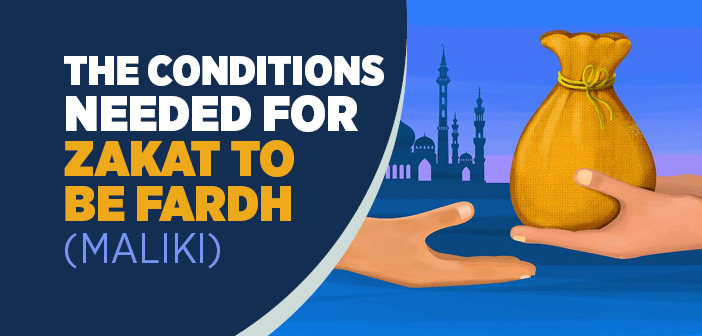What are the requirements for zakat to be obligatory?
The circumstance of the zakat being fardh for someone is dependent on a few conditions. A part of these conditions is to do with the person giving the zakat, another part is to do with the goods that the zakat is subjected to.
The person who will give the zakat must be a Muslim and they must be free. It is not obligatory for them to be able-minded and to have reached the age of puberty. Their parents will pay the zakat of their goods for them.
The goods from which the zakat will be given must be goods that are subjected to the zakat, these are three kinds; gold-silver, crop and animals. Also goods that are similar to these three separate goods (gold-silver, crops and animals) in terms of value, such as trade goods, are also subjected to zakat. The person must be in full possession of these goods. There is no zakat for precious stones that are not gold and silver, goods such as furniture that can be used, horses, slaves, honey, milk etc-as long as they are not obtained for the purpose of trade. The goods in which zakat will be subjected to must have a nisab amount or must be of nisab value. For money to be able to be subjected to zakat, a year must have went passed, the crops must have matured, and in the case of animals, the zakat officer must have come by. For zakat to be fardh for goods such as gold-silver, it is required for the person to be debtless.
As for the nisab; it is a certain measurement and amount that the religion has put forward for goods. The nisab amounts that are established for goods subjected to the zakat were specified in our Prophet’s. They are as follows:
- 20 misqal for gold. According to todays unit of weight it is 85 grams.
- For ready cash and for trade goods, the amount of the value that is equivalent to 20 misqal worth of gold.
- 200 dirham for silver. This amount is approximately 595 grams.
- An amount of 40 for sheep and goats.
- An amount of 30 for cattle and buffaloes.
- An amount of 5 for camels.
- 5 wask for products of the soil. This is approximately 750 kgs.
Goods that Are Subjected to Zakat
There are three types of goods that are subjected to zakat:
- Animals
These are the species of camels, cattle, sheep and goats. There is no zakat for donkeys, mules and slaves.
- Products of the Soil
These are all types of grains and plants in where their oils can be extracted, dates and grapes. There is no zakat for fruits such as figs and pomegranates.
- Gold and Silver
There is no zakat for minerals other than gold and silver.
Source: Fiqh1 (According To The Maliki School Of Islamic Law), Erkam Publications





